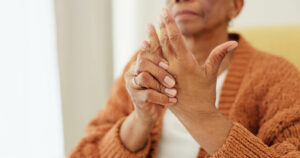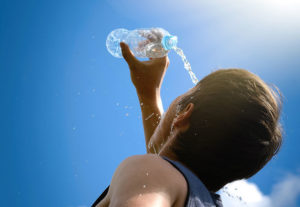Arthritis is a common condition, yet it is frequently underestimated and misunderstood. Many people tend to shrug it off as “just a bit of wear and tear” or chalk it up to aging. In reality, arthritis is far from the usual aches and pains, and it is not an inevitable part of getting old—it has no cure and, without proper medical care, it can lead to permanent disability.
Contrary to popular belief, arthritis is not just one disease: it is an umbrella term for 100 different joint conditions, each with its own set of challenges. Despite their differences, many types of arthritis share common warning signs. It is important to pay attention when your body starts dropping clues and take action right away. The sooner you get treatment, the better your chances of avoiding irreversible joint damage and preserving your mobility and overall quality of life.
Below, you will learn about the common symptoms of arthritis and where to find treatment for it in Wellington, FL.
Joint Pain
Joint pain, also known as arthralgia, is the most common symptom of arthritis. Depending on the type you have, you may experience either a dull ache that is gradual and persistent, or sharp, severe pain out of nowhere. You might feel it in your hands, shoulders, knees, hips, or even your feet, and it can manifest after periods of rest and exercise.
If you are finding yourself constantly reaching for painkillers or skipping activities because of sudden or recurrent attacks of joint pain, it is definitely worth getting checked.
Swelling
Swelling is another hallmark sign of arthritis, and its cause depends on the type of arthritis you are dealing with.
With wear-and-tear arthritis (osteoarthritis), swelling occurs due to friction, which happens when the cushion (cartilage) lining your joints wears down and your bones grind against each other.
With inflammatory types of arthritis like gout and rheumatoid arthritis, your immune system goes into overdrive, mistakenly attacking the tissues in your joints. This triggers an inflammatory response, which is essentially part of your body’s healing mechanism. Inflammation causes the lining of your joints to swell up and produce excess fluid. This buildup of fluid leads to visible swelling around the joint.
Unlike swelling caused by minor injuries, arthritis-related swelling tends to linger or ebb and flow. If the area around a joint looks visibly enlarged or feels puffy for more than three days, and rest and ice do not bring relief, see your healthcare provider to find out its underlying cause.
Stiffness
Stiffness, particularly in the morning or after a long period of inactivity, is another common sign of arthritis.
Like swelling, stiffness related to osteoarthritis (OA) is a result of cartilage damage, while stiffness in inflammatory types of arthritis is due to swelling of the joint lining and excess fluid buildup.
If you find yourself struggling to move a joint, or needing time to loosen it up before you can function normally, it could be a sign that arthritis is at play.
Fatigue
Fatigue is another common symptom of arthritis, albeit lesser-known. Arthritis-related fatigue has a number of potential causes, namely:
- Sleep deprivation: The nagging pain related to the condition can make restful sleep elusive, leaving you feeling spent the next day.
- Stress: Unrelenting arthritis symptoms can lead to stress, which triggers the release of cortisol and adrenaline. While helpful in short bursts, constant elevation of these hormones can disrupt your natural energy cycle. This results in physical burnout.
- Inflammation: The inflammatory response is an energy-intensive process in itself. Your body requires energy to ward off what it perceives as a potential threat.
- Inactivity: The pain and stiffness associated with arthritis can make movement seem like a tall order. However, without it, your energy levels can take a hit. When you are sedentary, your blood flow slows down. Reduced blood flow deprives your cells of oxygen, which drives your metabolism, a process in which your body turns food into energy.
Treatment for Arthritis in Wellington, FL
Arthritis is one of those conditions that you are never meant to tackle alone. You need an expert by your side to help you rein in your symptoms, slow its progression, and maintain your independence.
For top-tier treatment for arthritis in Wellington, FL, partner with us here at Advanced Medical Clinic. Our providers specialize in chronic disease management and have helped countless men and women feel, move, and live better despite their conditions—they can help you, too.
To request an appointment with Dr. Ishan Gunawardene, our board-certified internist, or Shariffa Gunawardene, our board-certified family nurse practitioner, call us at (561) 434-1935. You may also fill out this secure online form.
External links:



